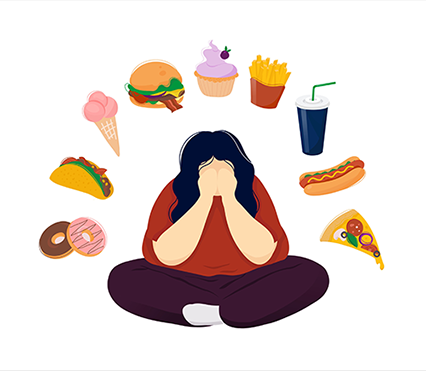Interaction between depressive state and high-fat diet and its impact on behavioral and body weight changes in male mice
Depression and obesity are prevalent, long-term conditions in today’s society, and research consistently shows a two-way relationship between them—people with depression are more likely to become obese, and vice versa. While high-fat diets (HFDs) are known contributors to obesity, the influence of depression on weight gain and the mechanisms involved are still not fully understood. This study by Hu et al. (2025) aimed to explore how persistent depression during adulthood might affect weight gain triggered by high-fat diet (HFD) and whether high-fat diet (HFD), in turn, influences depressive behavior in mice. Using a Chronic Unpredictable Mild Stress (CUMS) model, researchers induced depression-like states in male mice, who were then fed either a normal or high-fat diet for seven weeks before undergoing behavioral assessments and weight tracking. The findings revealed that stress initially led to faster weight gain; however, this did not translate into differences in final body weight or fat mass. Moreover, while HFD didn’t notably worsen depressive behaviors in stressed mice, it did seem to provoke such behavior in unstressed mice. Overall, the results suggest that long-term depression does not significantly drive obesity in mice, and that high-fat diets do not majorly worsen depression symptoms in this model—contrary to patterns observed in human studies. [NPID: Depression, obesity, comorbidity, high-fat diet, mouse model]
Year: 2025
 Navigation
Navigation









